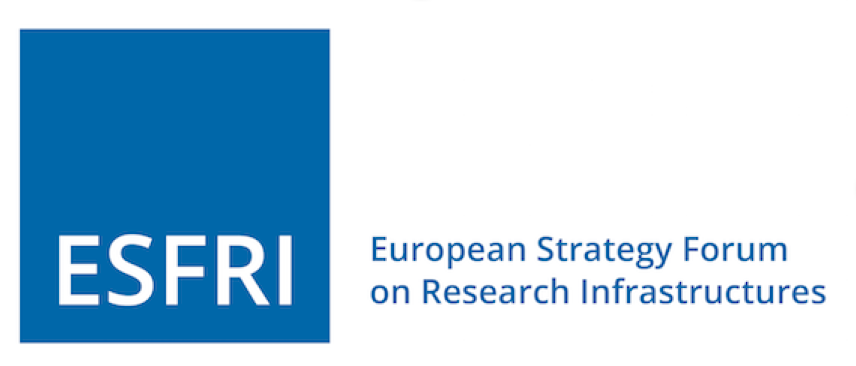Online conference
Stay tuned to the Future. Impact of research infrastructures 2.0
September 16 & 17, 2021
Understanding impact is much more difficult than understanding performance. While the reflections and publications on how to define and measure impact has grown over the last year, a unified framework or consensus on how to assess the impact of research infrastructures does not yet exist.
Taking as point of departure the conference organized by the ESFRI Strategic Working Group on Social and Cultural Innovation on the impact of research infrastructures, which took place in 2018 in Bologna, the ESFRI Strategy Working Groups have joined forces to organize this follow-up conference to discuss the meaning and the possible measurement of impact further. The overall objectives of the conference were:
The exchange on the meaning of impact and its variation between and within different fields and research infrastructures.
The exchange on the measurement of impact and its variation between and within different fields (scientific but also economic, societal, cultural impact).
To showcase where and how infrastructures in different field create impact.
To discuss potential and limitations of collaboration between infrastructures for creating impact.
To discuss what is the best way for research infrastructures to increase their impact further.Our keynote speakers:
Jelena Angelis: European Future Innovation System Centre, Belgium
Claire Donovan: University of Greenwich, UK
Frédéric Sgard: OECD Global Science Forum, Paris, France
Programme and session videos Day 1
- Georg Lutz, Vice chair of ESFRI SWG Social and Cultural Innovation, Local Organiser
- Philipp Langer, Deputy Director-General EU Framework Programmes & European Research and Innovation Area, State Secretariat for Education, Research & Innovation SERI
- Apostolia Karamali, Head of Unit, European Commission, R&I Actors and Research Careers (RTD.A.3)
- Bente Maegaard, Chair of ESFRI SWG Social and Cultural Innovation, Programme Committee chair
- Jelena Angelis, European Future Innovation System Centre, Belgium: Impact assessments: Are we in for a long ride?
- Claire Donovan, University of Greenwich, United Kingdom: The Politics and Ethics of Assessing Research Impact: Implications for research infrastructures
- Benedetto Lepori, USI, Università svizzera italiana, Switzerland: Infrastructures for distributed fields: how to engage audiences?
- Florent Gasparin, Mercator Ocean, France: Key role of RIs for downstream applications: the example of the ocean
- Thierry Strässle, Paul Scherrer Institute, Switzerland: Function and impact of a national lab, the example of the Paul Scherrer Institute in Switzerland
- Matthew Woollard, UK Data Archive, UK: Impact from Infrastructure: Making Measurement Count
- Jessica Catalano, Centre for Industrial Studies, University of Milan, Italy: Thinking how to define and measure impacts of RIs
- Andrew Harrison, Diamond Light Source, UK: Impact of large central facilities for science and engineering – known and unknown quantities
- Michael Mirtl, eLTER – Long-term Ecosystem, critical zone & socio-ecological Research, Germany/Austria: The impact of community integration, RI-collaboration and co-location across organisational levels from local to global.
- Antje Keppler, Euro BioImaging: Imaging infrastructures enable discoveries and innovations and provide impact for life sciences
- Francesco Sette, ESRF – The European Synchrotron Radiation Facility, France: X-ray Science and ESRF in the broad context of science, innovation and education advances
Video session 4. Introduction and presentation by Michael Mirtl
Video session 4. Presentations by Antje Keppler and Francesco Sette
Programme and session videos Day 2
- Frédéric Sgard, OECD Global Science Forum, Paris, France: Revisiting RI impact assessment after the Covid-19 crisis.
- Rory Fitzgerald, ESS – European Social Survey, City University London, UK: Mapping impact and impact pathways: the European Social Survey Research Infrastructure
- Sébastien Dupraz, ECCSEL – European Research Infrastructure for CO2Capture, Utilisation, Transport and Storage, France: Documenting impact of ECCSEL ERIC in several dimensions
- Philippe Segers, PRACE- Partnership for Advanced Computing in Europe, Belgium: Impact in the Digital Domain: KPIs of the High Performance Computing infrastructure with impact on other Domains
Presentations
Jessica Catalano: Thinking how to define and measure impacts of RIs
Claire Donovan: The Politics and Ethics of Assessing Research Impact: Implications for research infrastructures
Sébastien Dupraz: Documenting impact of ECCSEL ERIC in several dimensions
Rory Fitzgerald: Mapping impact and impact pathways: the European Social Survey Research Infrastructure
Florent Gasparin: Key role of RIs for downstream applications: the example of the ocean
Andrew Harrison: Impact of large central facilities for science and engineering – known and unknown quantities
Antje Keppeler: Euro-Biolmaging ERIC. Imaging infrastructures enable discoveries and innovation and provide impact for life sciences
Philippe Segers: Impact in the Digital Domain: KPIs of the High Performance Computing infrastructure with impact on other Domains
Francesco Sette: The European Synchrotron Radiation Facility, France: X-ray Science and ESRF in the broad context of science, innovation and education advances
Frédéric Sgard: Revisiting RI impact assessment after the Covid-19 crisis
Thierry Strässle: Function and impact of a national lab, the example of the Paul Scherrer Institute in Switzerland
Biographies of the presenters
Jelena Angelis
Jessica Catalano
Claire Donovan
Rory Fitzgerald
Florent Gasparin
Andrew Harrison
Jan Hrušák
Apostolia Karamali
Antje Keppler
Benedetto Lepori
Michael Mirtl
Philippe Segers
Francesco Sette
Frédéric Sgard
Thierry Strässle
Contact
Program committee
Georg Lutz, Social and Cultural Innovation SWG, local organiser
Basudeb Chaudhuri, Social and Cultural Innovation SWG
Jose Luis Martinez, Physics and Engineering SWG
Orla Murphy, Social and Cultural Innovation SWG
Jeannette Ridder-Numan, ESFRI Implementation Group
Federico Ruggieri, DIGIT SWG
Radislav Sedlacek, Health and Food SWG
Maria Theofilatou, European Commission
Minh Quang Tran, Energy SWG
Gert Verreet, Environment SWG



 Bâtiment Géopolis,
Bâtiment Géopolis, +41 (0)21 692 37 30
+41 (0)21 692 37 30

